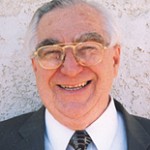There are many myths, half truths and misunderstandings circulating among the general public about Hospice and its services. Such misleading information undercuts the true purpose of Hospice. It also hinders people from using hospice services when they really need them. It often surprises and sometimes even shocks me to hear the misconceptions that people hold regarding hospice and the services it provides.
Such misinformation became very apparent while I was talking with a family member who had just lost her parent. She was struggling emotionally with the death of her father who had passed away just a week prior. She confided to me that she felt numb and confused as to what to do next. She had lovingly cared for her dad for the last two years, giving up her job to do so. In her grieving she did not know what to do or where to turn for help. She was perplexed as to what direction to now take in her own life.
I gently inquired whether she had talked to the hospice social worker regarding her feelings. She said no, motioning with her hands as if closing the book on her dad’s life signifying the final chapter of his life, saying: “I thought once the person died, it was over and that was the end of it.”
This took me by surprise, since the opposite is true. Hospice services continue for family members or friends even after the death of their loved one. The family continues to receive bereavement counseling and services for a full year after the death of their loved one.
It is a specific requirement of the hospice social worker to contact the bereaved family members within 30 days after the death of their loved one and at regular intervals thereafter: 90 days, 180 days and on the anniversary of the person’s death.
The role of the hospice social worker is to provide the emotional support and counseling services to the family as needed to assist them in processing their grief and supporting them in returning to a regular life agenda.
Hospice’s focus is not only on the patient but also on the entire family as a social unit that has gone through the dying process. Everyone effected by this process is cared for by the Hospice team until they are back to living a normal life once again.
Rev. Luigi Persichetti is the chaplain for Southern Utah Home Care and Hospice and retired Unity minister from Unity Center of Positive Living in St. George.
